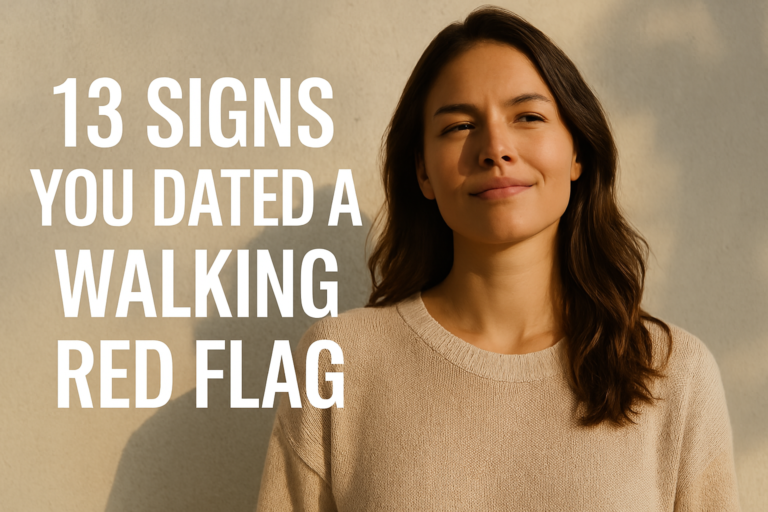Is It Ever Okay to Be Friends with Your Ex? (What Experts & Real People Say)

Breakups are hard. But what happens when the tears dry and someone suggests, “Let’s just be friends”? Is that even possible? Or healthy? Whether you’re freshly single or reflecting on past relationships, one of the most common post-breakup questions is: “Is it ever okay to be friends with your ex?”
The answer isn’t black and white. In this blog post, we’ll explore what relationship experts, psychologists, and real people have to say about maintaining friendships with exes. We’ll unpack the emotional, psychological, and practical angles—plus share red flags, tips, and alternatives.
Why Some People Want to Stay Friends After a Breakup
Remaining friends with an ex can feel natural for some, especially if the breakup wasn’t hostile. Here are a few common reasons people stay connected:
1. Emotional Comfort and Familiarity
When you’ve shared months or years with someone, it’s hard to cut off all communication suddenly. Staying friends offers a sense of continuity.
2. Shared History and Respect
Some relationships end amicably. Mutual respect remains, and friendship seems like a way to honor what was.
3. Co-Parenting or Shared Responsibilities
For couples with children or joint business ventures, staying in each other’s lives is often necessary.
4. Hope of Rekindling the Relationship
Sometimes, the desire to stay friends masks more profound hopes of reuniting. While not always harmful, this can lead to blurred boundaries.
When Staying Friends Can Be Healthy

Rekindle a friendship with your ex in certain situations, especially when both individuals have emotionally moved on
You’ve Both Moved On Emotionally
There’s no lingering romantic attachment. Neither of you is secretly hoping to rekindle the flame.
You Have Clear, Mutual Boundaries
You’ve had an honest conversation about your new dynamic, and physical and emotional boundaries have been respected.
Friendship Adds Value to Your Life
It’s not forced. You enjoy each other’s company and support each other like any other friends.
There’s No Interference with New Relationships
It may be healthy if your ex-friendship doesn’t cause jealousy, secrecy, or confusion with new partners.
Real Talk: “My ex and I broke up three years ago and are still friends. We both moved on and even attend each other’s weddings!” — Lisa, 34
Signs It’s Not a Good Idea

Despite the ideal scenarios, there are just as many reasons why staying friends might be a bad call. Here are some red flags:
One or Both of You Still Has Feelings
Friendship can become a stand-in for the relationship, leading to confusion, jealousy, and hurt.
It Becomes Toxic or Manipulative
If one person uses “friendship” to control, guilt-trip, or keep tabs, it’s emotionally unhealthy.
You’re Not Healing or Moving On
If being around your ex makes you feel stuck or keeps reopening emotional wounds, your friendship might be stalling your healing.
It Hurts Your Chances of Future Love
New partners may feel threatened or question your emotional availability, especially if your ex is a central figure in your life.
Quick Checklist: Should You Stay Friends With Your Ex?
- Have you both moved on emotionally?
- Are your interactions drama-free?
- Do you feel good after spending time with them?
- Does your ex respect your boundaries?
- Are new relationships unaffected by your friendship?
If you answered “no” to any of the above, consider putting space between you and your ex.
What Experts Say
Psychologists Weigh In
Relationship psychologist Dr. Jennice Vilhauer states, “Remaining friends with an ex can be a sign of emotional maturity—but only when both parties are honest about their intentions.”
Attachment theory also plays a role. Those with secure attachment styles are more likely to have healthy post-breakup connections, while anxious or avoidant types may struggle.
Psychology Today supports this idea, noting that post-breakup friendships can be beneficial but only effective when both parties are emotionally ready.
Relationship Coaches Agree
Most coaches recommend at least 30 to 60 days of no contact after a breakup to allow for emotional separation. After that, if the desire for friendship still exists, reassess your intentions.
Verywell Mind outlines key boundaries that help make these friendships work, including limiting contact, managing expectations, and being transparent with new partners.
WebMD also highlights the emotional risks involved, suggesting that honest self-reflection is key before committing to a post-breakup friendship.
How to Make It Work (If You Decide to Stay Friends)

If you’ve decided that friendship with your ex is possible and healthy, here are tips to make it work:
1. Set Clear Boundaries
Discuss what’s okay and what’s not. Are sleepovers off-limits? Is texting every day too much?
2. Avoid Romantic or Flirty Behavior
Don’t blur the lines. If you’re friends, act like it. No cuddling, no nostalgia-fueled “remember when” moments.
3. Respect New Partners
Be transparent with new partners about the friendship. Make sure your ex doesn’t hold more space in your life than your current relationship.
4. Keep It Public or Group-Oriented
At least at first, meet up in public places or with mutual friends to keep things casual.
5. Be Honest With Yourself
If being around your ex is hurting you in any way, honor your own healing process and take a step back.
Alternatives to Staying Friends
Sometimes, it’s not about choosing between love and friendship. It’s about creating space to heal and grow.
Here are a few alternatives:
- Respectful Distance: Wish them well, but move on with limited or no contact.
- Future Acquaintances: Reconnect casually years later when you’re both in new chapters.
- Coexist cordially: Be polite if you see them at events, but don’t force closeness.
Remember, friendship isn’t the only way to show maturity after a breakup.
Conclusion
So, is it ever okay to be friends with your ex? Sometimes. However, it depends entirely on the emotional state of both individuals, the circumstances of the breakup, and how much healing has taken place.
If staying friends brings peace, clarity, and mutual support, then maybe it’s a new beginning in a different form. But if it brings confusion, longing, or pain, then letting go might be the greatest act of love you can offer yourself.
Final Thought: You don’t owe your ex friendship. You owe yourself peace.
Related Posts:
- How to Co-Parent After a Breakup
- Overcome Heartbreak: Heal Through Grief, Self-Compassion & Courage.
- The Emotional Comeback Plan: How to Rewire Your Brain After Heartbreak







One Comment